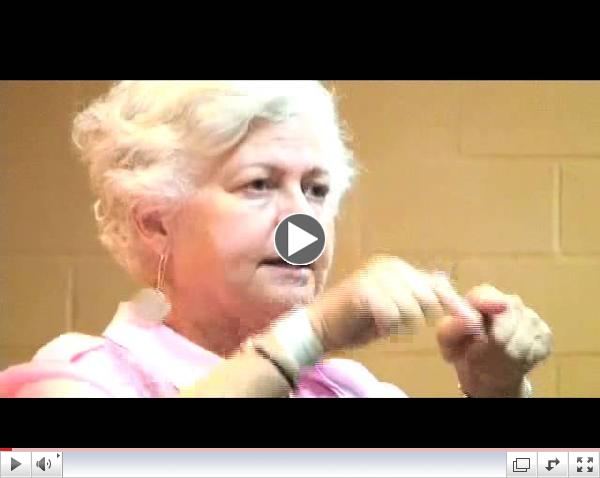|
Greetings!
Something from my past has captured my attention this month - the release of the new version of the mental health "bible," the "Diagnostic and Statistical Manual-5". As a therapist for the past thirty years this manual has been on my desk, and referenced often in filling out paper work and blank spaces in medical charts. Let me know your take on this cultural practice of how we name disease.
May has been a busy month with advance planning for my book launch in August. Thanks to my daughter-in-law J ody Curtis, the book now has it's own web page - Check it out. ody Curtis, the book now has it's own web page - Check it out.
And finally, another project is ready for launch - the InterPlay Proof Project that Pam Meadowcroft and I have been working on this past year. We are poised to systematically collect data on the effects of InterPlay, moving us toward becoming an evidence-informed system. You can help in a special way by making a contribution to InterPlay on Give InterPlay Day Wednesday May 29.
Thanks for your support,

|
|
|
|
|
Be Careful In The Naming
|
Though I'd rather see a catalog of the symptoms of wellness, the mental health field continues to keep its focus on disease this month by releasing a new version of its mental health "bible," the Diagnostic and Statistical Manual-5. Used by all behavioral healthcare professionals in the United States, the manual is revised every 15 or so years after much debate,  research, and field-testing. The purpose of the volume is to establish a common language for medical specialists as they work on behalf of clients, and for researchers comparing results study to study. But for the general pubic the practical reality involves the third party reimbursements many people count on to pay for their treatment. research, and field-testing. The purpose of the volume is to establish a common language for medical specialists as they work on behalf of clients, and for researchers comparing results study to study. But for the general pubic the practical reality involves the third party reimbursements many people count on to pay for their treatment.
As a "psychiatric social worker," and a university instructor of various types of family therapies over these past thirty years, I've seen each version of the manual be strongly influenced by the types of treatments available at the time, (lobotomy, electroshock, drugs, psychotherapy), the scientific breakthroughs in understanding the body and the brain, (brain imaging, behavioral outcome research) and the cultural biases of each decade.
 At the University Health Center where I worked in the 70s, the stigma associated with mental illness had students experiencing headaches praying for a brain tumor so there would be a physical reason for their symptoms. This same stigma keeps some people from seeking treatment, even today. But culture and attitudes do change and with them, the list of diseases. Thankfully homosexuality is no longer considered a disease, and the lack of control over one's drinking earns an addiction diagnosis today rather than a moral judgment on one's character. At the University Health Center where I worked in the 70s, the stigma associated with mental illness had students experiencing headaches praying for a brain tumor so there would be a physical reason for their symptoms. This same stigma keeps some people from seeking treatment, even today. But culture and attitudes do change and with them, the list of diseases. Thankfully homosexuality is no longer considered a disease, and the lack of control over one's drinking earns an addiction diagnosis today rather than a moral judgment on one's character.
expressed it, "All mental disorders are reducible to one basic psychosocial process: the failure of the suffering individual to adapt to his or her environment."
Working with families from different cultural backgrounds, I came to see the great danger in separating out an individual and their symptoms from the milieu in which they live. My gay son had trouble coming out publically about his sexual orientation and later about the disease he contracted due to the attitudes of the larger culture at the time. Family therapist Virginia Satir's suggestion - "In what situation would this attitude or behavior make sense? When you see someone who seems to be crazy, look in the system for who or what might be driving them crazy."
The upcoming fifth revision replaces the DSM IV, first published in 1994, and will, as earlier versions did, make changes in what is or is not considered a disease. Early reports warn that the term "dementia" is being eliminated, replaced by "mild Neuro-cognitive Impairment." "Binge Eating Disorder" has moved from the appendix to the main section of Eating Disorders, sharing space with "Anorexia Nervosa." And in the Major Depressive Disorder category, the "bereavement exclusion" has been eliminated which makes me more than a little nervous. This exception was a two-month pass after a major loss before a person with severe symptoms would be labeled with a psychiatric disorder. (Susan Krauss Whitbourne, Psychology Today).
So with each revision there is fear that some changes may make what's normal seem sick, or as with ADHD, that by emphasizing biological causes people will be lead to medicine rather than to more effective behavioral strategies. My hope is that this carefully thought system of naming will serve to organize and structure treatment, while not isolating and stigmatizing the people exhibiting symptoms.
 | |
Virginia Satir: Becoming More Fully Human
|
 | |
Paula J. Caplan: Losing Labels to Find Ourselves
|
|
|
Sheila K. Collins, PhD
Email Sheila: sheila@sheilakcollins.com
817-706-4967
|
|
|
|